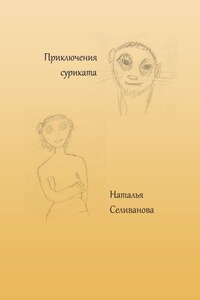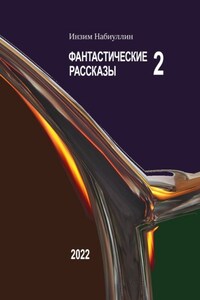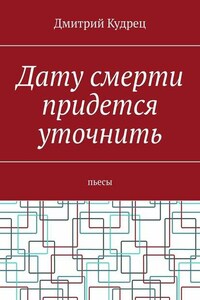Imagine your arm numbed after a night's sleep. Then you wake up and fresh, oxygen-rich blood rushes through the arteries again. You know the feeling, don’t you? I’m sure you do. Anyway, when you emerge from a state of deep conservation, you feel something very similar, but on a much greater scale. It's pins and needles from head to toe, your eyes feel to be popping out of their sockets, and instant death, in that moment, seems a rather acceptable way out. But, like everything under the sun, deconservation eventually comes to an end. The system scrupulously purges the cells of substances that previously slowed down their vital functions nearly to a halt. Throughout the process, the blood is repeatedly pumped through a variety of filters. At the same time, delicate needles inject chemical reagents to all parts of the body. And then the moment comes when your widely open eyes regain their ability to focus, and the brain begins to think, albeit not very straight at first.
My vision cleared, and I immediately realized what was going on. It was just like the last time. Only the first time was a test-run. Doctors had to check how well we could tolerate deep conservation.
Meanwhile, the needles retracted back into the capsule, and the bed activated its pneumatic massage function. I stared through the transparent lid of the capsule, failing to understand why the ceiling was so high. My memory returned quickly. Has something gone wrong? Have they discontinued the project? The capsule lid clicked and parted. I took hold of its edges and sat down, looking around.
“All right, another one woke up,” said a gaunt balding man in a white hoodie. His accent was unfamiliar.
Then I saw Ji Cheng sitting nearby in a capsule just like mine. Just like the rest of us, Cheng – our team's astrophysicist – was wearing a jumpsuit with a large United Nations emblem on the sleeve. Her calm, emotionless face never provided any clues as to what she was thinking.
“Who are you?” I asked the gaunt man.
“Dr. Stein, Thomas Stein,” he replied. And, judging by the inscription on the capsule, you are Maximilian Gauthier.”
“That's right, call me Max. It didn’t work out, did it?”
“What didn’t work out?” he asked, confused.
“The flight,” I said, examining the room. It was small, about three meters high and housed our five capsules along with some other – possibly medical – equipment, which I could not identify at a glance. In any case, we were definitely not aboard our ship, the Hope.
Another capsule opened up with a characteristic click, and I recognized Lisa Small, our radio engineer and co-pilot, endowed with a bright appearance and equally brilliant mind.
“Lisa Small, there you are,” Thomas Stein greeted the girl, peering into a cluster of displays which, as I just noticed, was connected to our capsules.
“Where are we?” Lisa inquired, turning her petite nose in my direction.
“Something is probably wrong with the ship, so they must have postponed the flight,” I shrugged.
Two capsules opened at once, and we saw the surprised face of John Finn, our captain, and the dour expression belonging to our biologist and surgeon, Boris Leonov. Finn promptly climbed out of his capsule and got straight down to business.
“Why was the flight postponed?” he asked Dr. Stein.
“I'm only the doctor,” he replied, and I noticed his strange (possibly, German) accent again.
The door opened, and a small chestnut-haired woman with sharp facial features and attentive brown eyes entered the room.
“You'll get your answers later, but not from me,” the doctor continued. “Ah, this is my assistant, Sheila Hill, she'll show you to your rooms. Take a couple of hours' rest, then we'll get together again and have someone answer your questions. Excuse me, I have lots of data to process regarding your condition. Conservation is a complex and unconventional procedure.”
I got out of the capsule, Small and Cheng did the same. I felt quite normal now. Leonov was still sitting, he was clearly interested in Stein's equipment.
“What's this?” he asked. “Why was the Toshiba analyzer replaced?”
“I repeat, all questions will be answered later,” Thomas Stein replied. “I have work to do. Treat the situation professionally.”
“Boris, get up,” Finn said. “We’ll figure everything out soon enough.”
With an exaggerated grunt, Leonov got out of the capsule and joined the group.
“Please, follow me,” Sheila Hill pointed at the door.
Finn looked at us, then left the room. I made way for Lisa and Ji, then followed. Leonov hesitated, trying to take a closer look at the medical equipment.
There was nothing remarkable in the corridor, except for a huge blond man with short-cropped hair. He was standing against the wall, powerful arms crossed over his chest. The blond wore a uniform, but not an astronaut uniform. He was in khaki fatigues, and there was a holster on his belt.
“Well, I just knew the flight would be cancelled,” said Leonov, as if expressing my own thoughts. “Terrorists blew up the ship, right?”
“It’s not what you think,” our guide informed.
“Then what?” Finn asked.
“Listen,” Sheila replied, “you'll find out soon enough, but not from me. So for now, just follow me.”
She led us down a concrete corridor lit with halogen lamps or something of the sort. Two separate lines of bundled wires – electrical and optical cables— were laid along the wall. A metal staircase led us to a lower floor. I noticed that the doors were sealed with massive airtight gates coming out of the walls.
The lower floor featured an identical corridor, although this one had doors along the right wall. These were compartments, rooms. However, they rather reminded me of prison cells. Dr. Hill showed each of us to our own room.
“Have a rest, I'll come for you in two hours.”
The tall beefy blond with the gun stationed himself in the corridor, further supporting my associations with prison. Sheila caught my eye.
“That's Werner. Should you need anything, just ask him.”
I nodded, although Werner seemed useful for only two purposes: moving something heavy or sending someone to a better world.
Having entered my compartment, I kicked off my shoes and dropped to the bed. I didn't feel well after the conservation. There was nothing special about the room: a bed, a table, two chairs, a shower and a toilet. According to my estimates, the room measured roughly ten square feet.
Well, it seems that our mission failed for some reason. Now we are probably at a military base. Though, it doesn’t really look like a boot camp. I wonder if the flight has been postponed or completely canceled. What happened? Julia will be happy, I thought, recalling my girlfriend's face. Although I made it clear to her that my goal was to fly.












